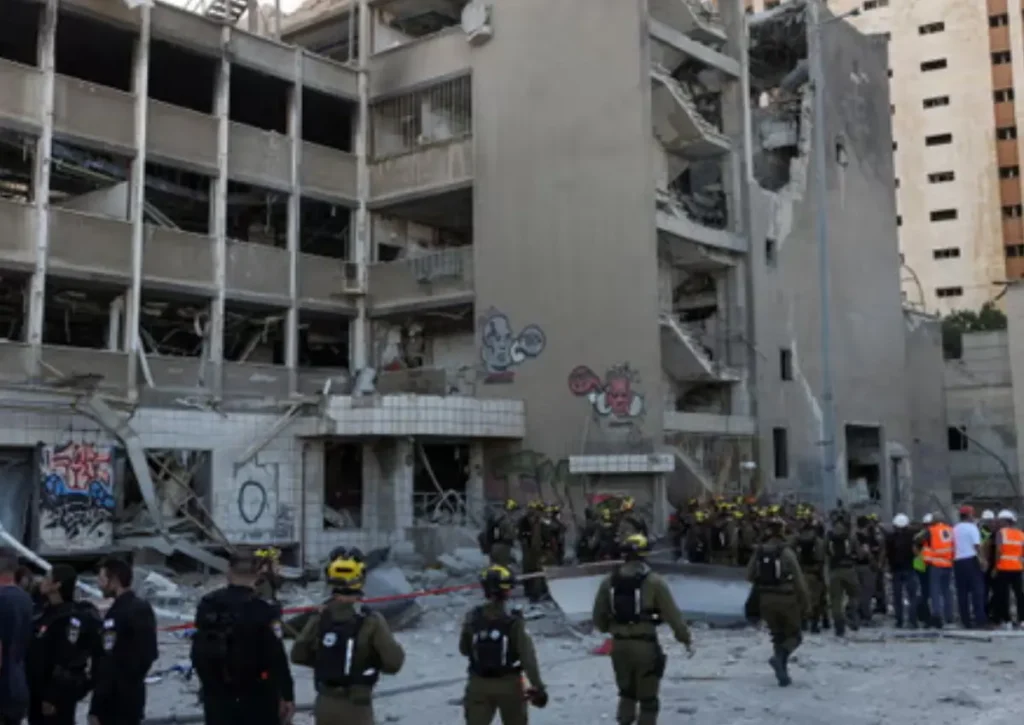A new wave of violence has erupted in the ongoing Israel-Iran conflict, with both nations exchanging direct attacks early Saturday. The Israeli military confirmed that its latest round of airstrikes targeted key Iranian nuclear and military facilities, which it claims have set back Tehran’s nuclear capabilities by at least two to three years. The move marks one of the most serious escalations in a conflict that has been building for months.

According to Israeli officials, the strikes focused on uranium enrichment sites, weapons manufacturing units, and missile depots located in central and southern Iran. The Israeli Defense Ministry stated that the attacks were based on precise intelligence indicating rapid advancement in Iran’s nuclear programme, which Tel Aviv views as a direct threat to its national security.
In a televised statement, Israeli Defense Minister Yoav Gallant said, “Iran’s nuclear infrastructure has suffered a significant setback. Our intelligence confirms that their enrichment plans have been disrupted, delaying any potential weapons capability by at least two to three years. This operation was necessary and strategic.”
In retaliation, Iran launched over two dozen ballistic and cruise missiles targeting various Israeli cities including Tel Aviv, Haifa, and military installations in the Negev region. Explosions were reported near Israeli airbases and critical infrastructure points, though the Israeli Iron Dome defense system reportedly intercepted several incoming missiles. Iranian state media described the missile launches as a “proportional response to Zionist aggression” and claimed several “military targets were successfully hit.”
Casualties have been reported on both sides, with early estimates indicating at least 15 fatalities in Iran and 8 in Israel. Hospitals in Tel Aviv and Isfahan are reportedly treating dozens of civilians and military personnel injured in the strikes. Footage shared on social media shows plumes of smoke, damaged buildings, and emergency services responding at multiple locations.
The international community has reacted with urgency. The United States has called for “immediate de-escalation” and warned against further military action that could engulf the region in wider conflict. U.S. Secretary of State Antony Blinken is reportedly in talks with both Israeli and Iranian representatives through back-channel diplomacy. The United Nations Security Council has scheduled an emergency session later today to discuss the rapidly deteriorating situation.
European Union leaders have expressed deep concern and called for restraint, while Russia and China have urged both parties to return to diplomatic channels. Global oil markets reacted sharply to the news, with crude oil prices jumping over 4% amid fears of supply disruption.
The latest confrontation comes after months of heightened rhetoric, sabotage allegations, cyberattacks, and covert operations between the two adversaries. While Israel maintains that it will not allow Iran to develop nuclear weapons under any circumstances, Iran insists its nuclear programme is for peaceful purposes and blames Israel for provocation.
With both sides now openly acknowledging direct military engagement, fears are growing that the situation could spiral into a full-scale regional war involving proxies in Lebanon, Syria, Iraq, and Yemen.
As of now, air raid sirens continue to sound in parts of Israel, and Iranian media reports that further strikes may be “on the table.” The world watches with anxiety as the crisis deepens.

